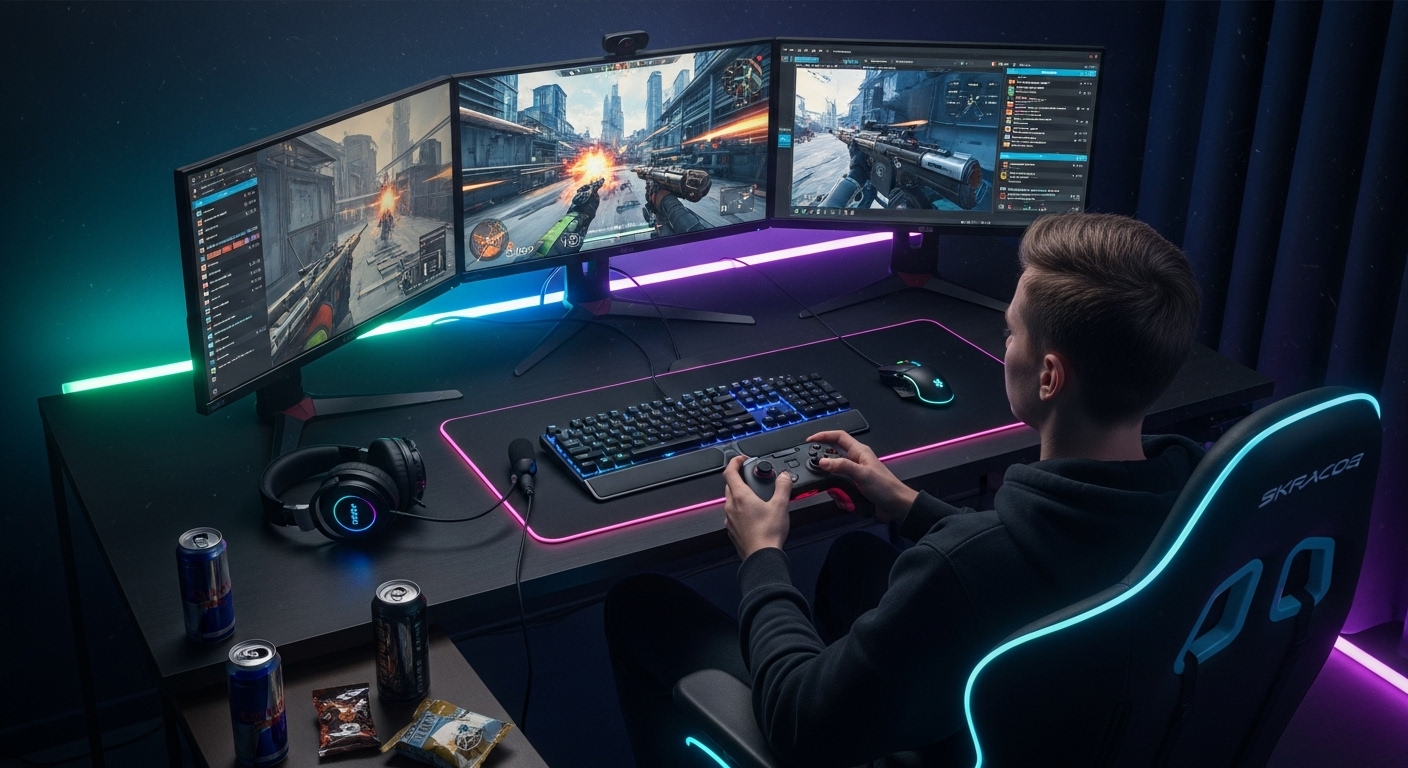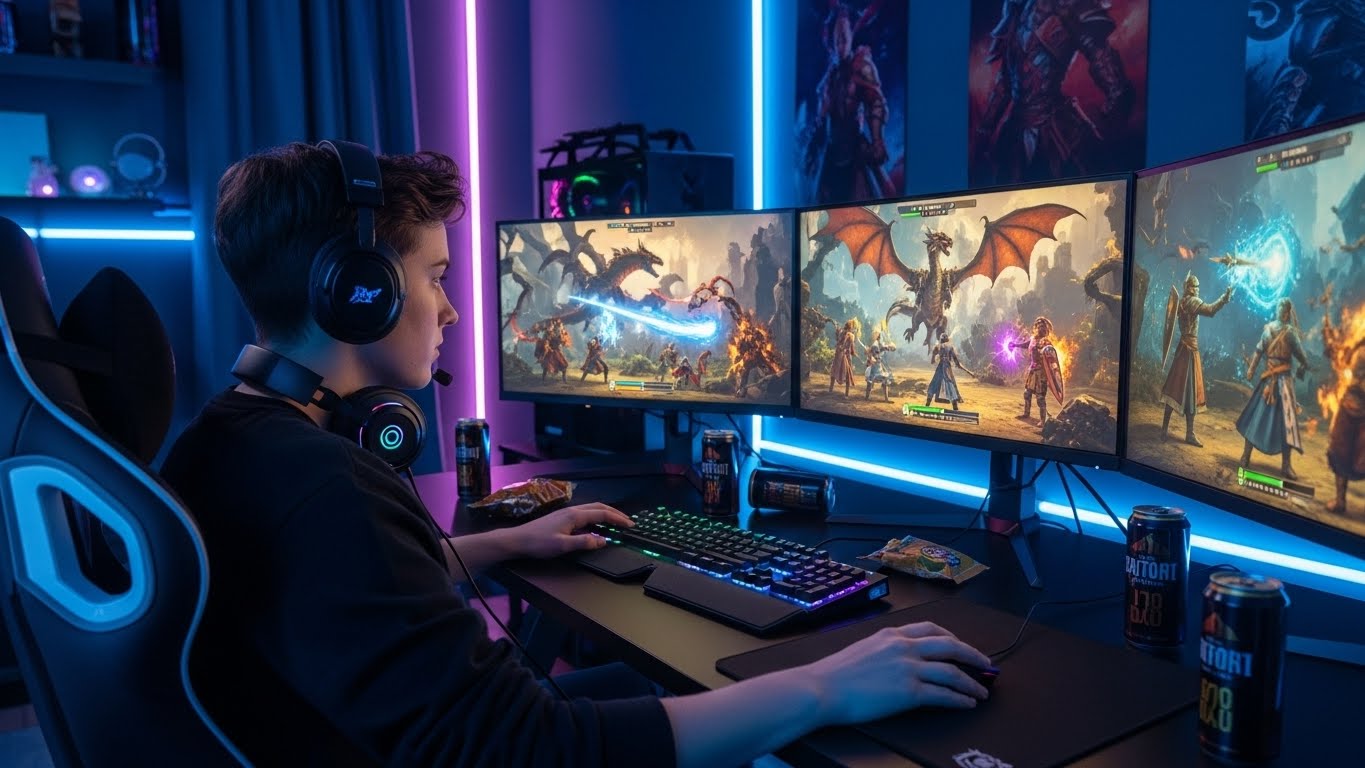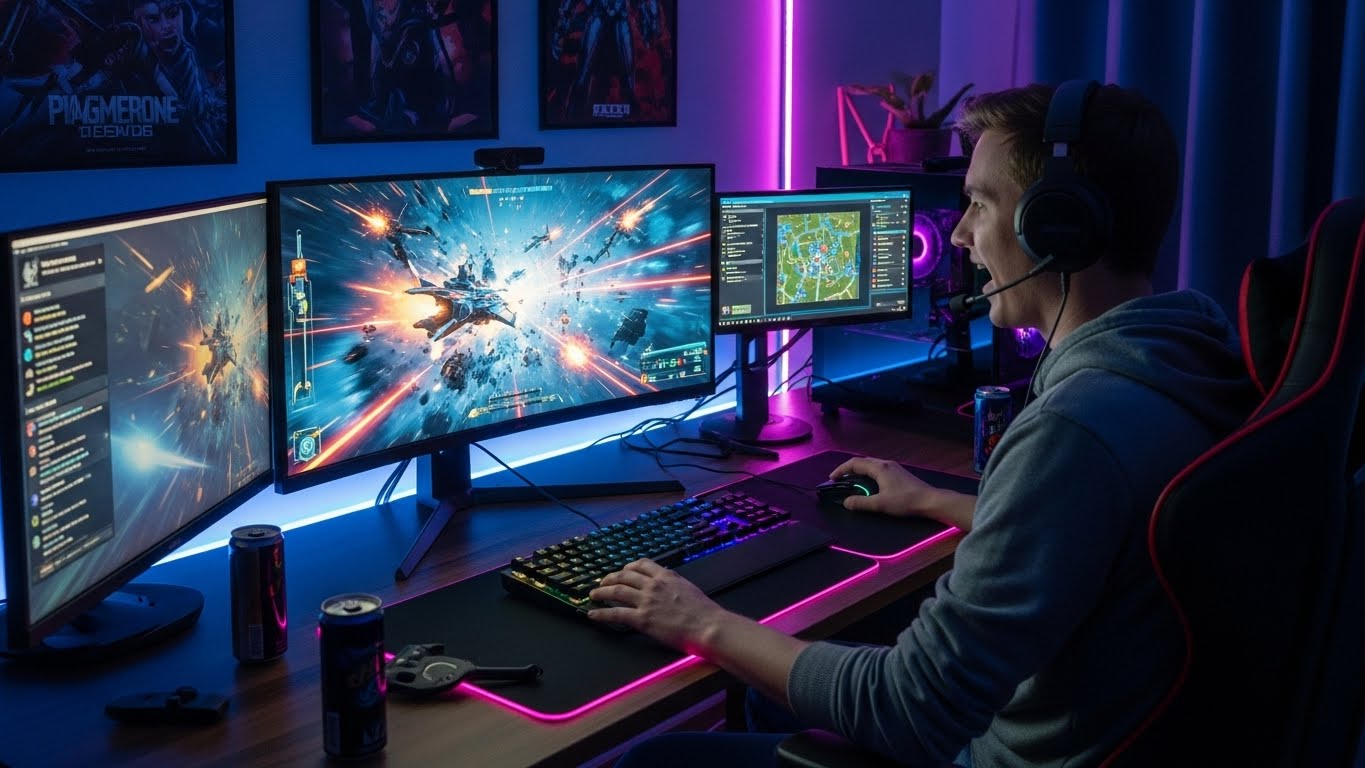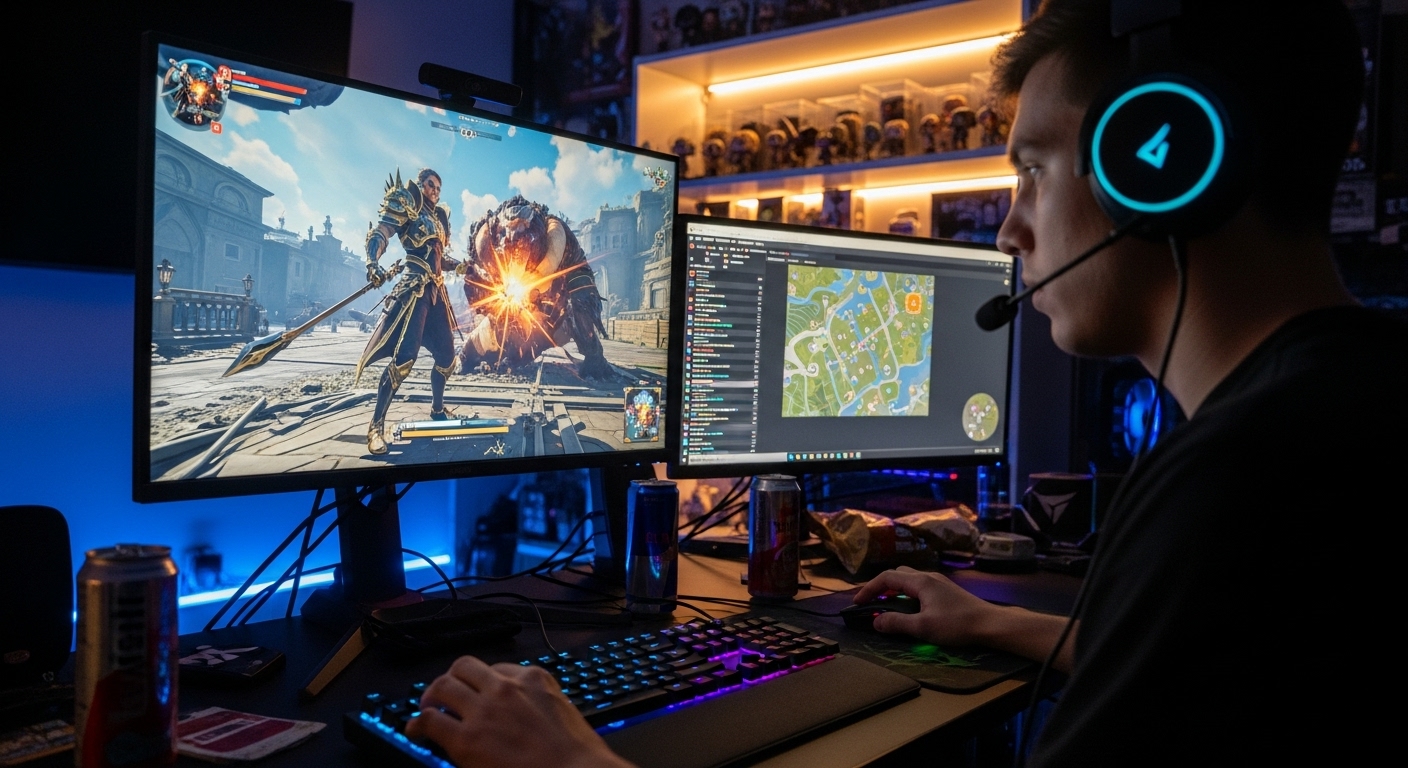Gaming is no longer just a hobby; it’s a global culture, a way of life for millions of people across the globe. From casual mobile games to immersive PC and console experiences, gaming has evolved in ways that many never anticipated. It’s not just about playing; it’s about connecting, competing, and sometimes even escaping reality. In this blog, we will dive deep into the essence of gaming—its evolution, its impact, and why it’s more than just a pastime.
The Evolution of Gaming: From Pixels to Realism
Gaming has come a long way since the early days of Pong and Space Invaders. Back then, gaming was a simple affair. The graphics were minimal, and the gameplay was basic. But that simplicity is what made it so addictive. As technology advanced, so did gaming. The shift from 8-bit graphics to high-definition visuals opened up new possibilities. Now, we have realistic graphics that blur the line between fiction and reality.
From 2D platformers to expansive open-world games, the evolution of gaming has been nothing short of remarkable. What started as small, independent projects in arcades has turned into a multi-billion-dollar industry, driven by advancements in graphics, sound, and storytelling. Developers now have the tools to create entire universes within games, where players can live out entire lifetimes, explore vast landscapes, or even become heroes in their own right.
The Social Side of Gaming: More Than Just Playing Alone
One of the most significant shifts in the gaming world in recent years has been the rise of multiplayer and online gaming. What once was a solitary activity is now a social experience. Online multiplayer games like Fortnite, Call of Duty, and World of Warcraft allow people to connect across the world, forming friendships and rivalries. Gaming is no longer just about winning; it’s about creating shared memories, strategizing with teammates, and competing against rivals.
Social gaming platforms such as Discord and Twitch have further enhanced this experience, enabling players to chat, stream, and watch others play. Whether it’s a competitive eSports tournament or a laid-back stream of someone playing a new game, the sense of community is stronger than ever. For many, gaming is a social hub, a place where they can meet like-minded individuals and bond over shared interests.
Escaping Reality: The Power of Immersive Storytelling
One of the unique aspects of gaming is its ability to immerse players in other worlds. Through narrative-driven games, such as The Witcher 3, Red Dead Redemption 2, or The Last of Us, players experience stories that are as emotionally powerful as those in movies or books. In these games, players are not just spectators—they’re active participants. Every choice, every action, has consequences that affect the story’s outcome.
This immersion can offer a temporary escape from the challenges of real life. Whether you’re saving a virtual world from impending doom or solving mysteries in a detective game, these experiences provide a sense of purpose, adventure, and triumph. For some, gaming offers a form of therapy, allowing them to disconnect from their daily stressors and enter a space where they can focus solely on the adventure at hand.
The Competitive Edge: Why Gaming is a True Sport
In recent years, gaming has evolved into a legitimate competitive sport. Esports tournaments attract millions of viewers globally, and professional players make lucrative careers out of their skills. Games like League of Legends, Dota 2, and Valorant are not only incredibly complex but require immense strategic thinking, teamwork, and quick reflexes.
The world of esports has garnered a massive following, with major tournaments offering multi-million-dollar prize pools and attracting the attention of sponsors, media, and fans alike. Gaming at a competitive level is just as demanding as traditional sports. It requires hours of practice, dedication, and the ability to work in sync with teammates under pressure.
Gaming and Mental Health: The Double-Edged Sword
While gaming offers numerous benefits, it also has its challenges. Excessive gaming can sometimes lead to negative impacts on mental health. For some, it becomes an unhealthy coping mechanism, replacing real-life interactions and responsibilities. The rise of addiction to gaming has prompted discussions about how to balance the enjoyment of gaming with a healthy lifestyle.
However, when used in moderation, gaming has been shown to have positive effects. It can improve cognitive skills, enhance problem-solving abilities, and even boost hand-eye coordination. Furthermore, multiplayer gaming can foster teamwork, communication, and socialization. It’s all about balance, ensuring that gaming remains an enriching and enjoyable part of life rather than a source of stress or isolation.
The Future of Gaming: What Lies Ahead?
The future of gaming is incredibly exciting. With the advent of virtual reality (VR) and augmented reality (AR), the lines between the real world and the virtual world are becoming even more blurred. VR headsets like the Oculus Rift and PlayStation VR already offer players immersive experiences, but as the technology continues to improve, it’s possible that we will enter fully realized virtual worlds where our digital and physical lives merge seamlessly.
Cloud gaming is also set to revolutionize the way we play. With services like Google Stadia and Xbox Cloud Gaming, players no longer need high-end hardware to play AAA games. All you need is an internet connection, and the game is streamed directly to your device. This could democratize gaming even further, making high-quality gaming accessible to everyone, regardless of their financial situation.
Conclusion: Gaming as a Lifestyle
Gaming is no longer just an activity; it’s an integral part of modern culture. It offers a platform for creativity, social interaction, competitive spirit, and immersive experiences. Whether you’re a casual gamer or a professional, gaming has something for everyone. As the technology evolves and the community continues to grow, it’s clear that gaming will remain a vital part of our lives for years to come.
The next time you pick up your controller or fire up your computer, remember—it’s more than just playing a game. It’s a journey, an experience, and a community waiting to be explored.



